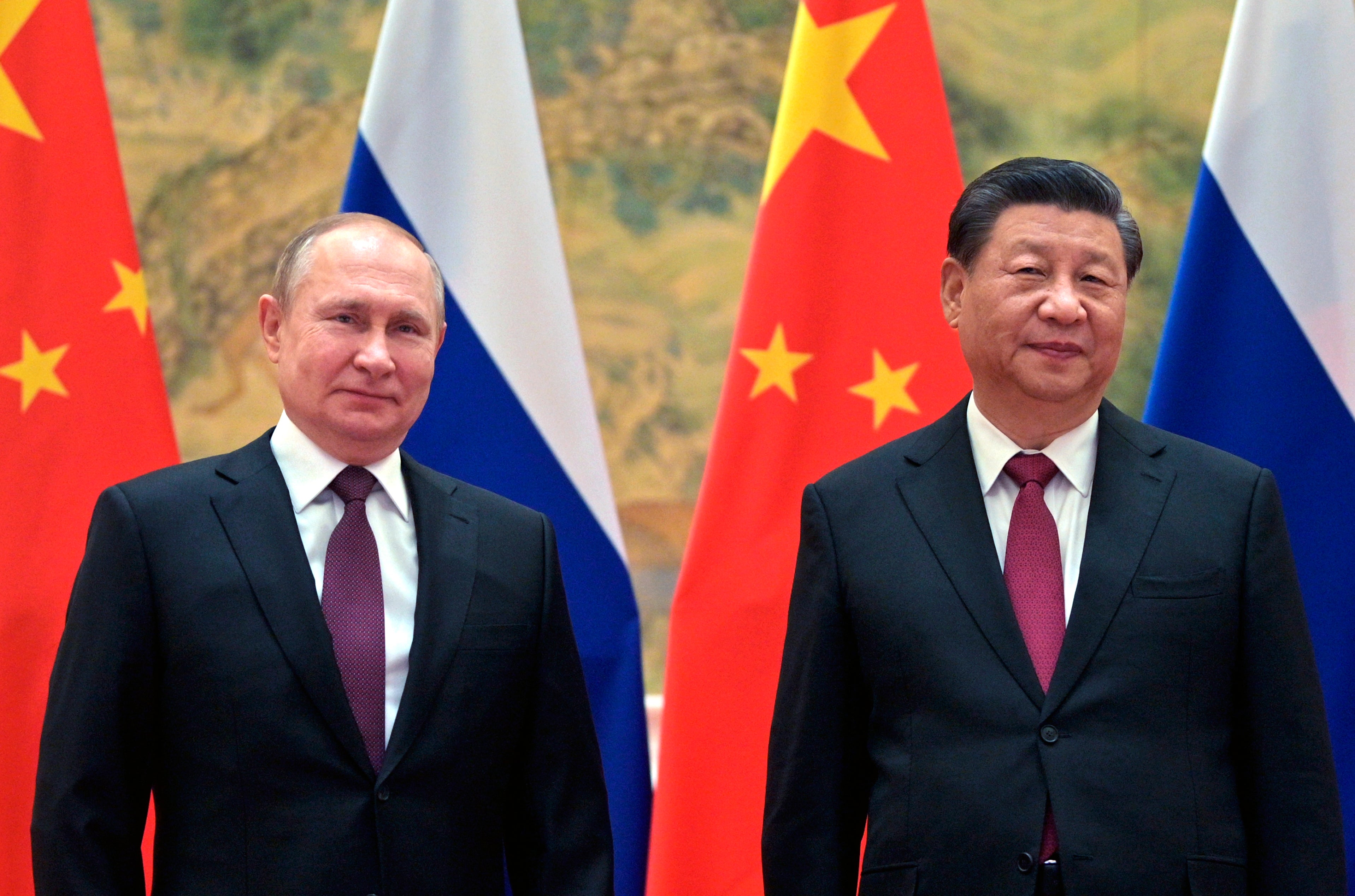Putin's visit to Beijing underscores China’s economic and diplomatic support for Russia
Russian President Vladimir Putin is expected to meet this week with Chinese leaders in Beijing on a visit that underscores China’s support for Moscow during its war in Ukraine

Russian President Vladimir Putin is expected to meet this week with Chinese leaders in Beijing on a visit that underscores China’s economic and diplomatic support for Moscow during its war in Ukraine.
The two countries have forged an informal alliance against the United States and other democratic nations that's now complicated by the Israel-Hamas war. China has sought to balance its ties with Israel with its economic relations with Iran and Syria, which are strongly backed by Russia.
Putin’s visit is also a show of support for Chinese leader Xi Jinping’s signature Belt and Road drive to build infrastructure and expand China’s overseas influence.
The Russian leader will be among the highest profile guests at a gathering marking the 10th anniversary of Xi's announcement of the policy, which has laden countries such as Zambia and Sri Lanka with heavy debt after they signed contracts with Chinese companies to build roads, airports and other public works they could not otherwise afford.
Putin's visit has not been confirmed, but Chinese officials have suggested he will be arriving late Monday.
Asked by reporters Friday about a visit to China, Putin said it would encompass talks on Belt and Road-related projects, which he said Moscow wants to link with efforts taken by an economic alliance of ex-Soviet Union nations mostly located in Central Asia to “achieve common development goals.” He also downplayed the impact of China's economic influence in a region that Russia has long considered its backyard and where it has worked to maintain political and military clout.
“We don’t have any contradictions here, on the contrary, there is a certain synergy,” Putin said.
Putin noted that he and Xi will also discuss growing economic and financial ties between Moscow and Beijing.
“One of the main areas is financial relations and creating further incentives for payments in national currencies,” Putin said. “The volume is growing rapidly, there are good prospects in high-tech areas, in the energy sector.”
Alexander Gabuev, director of Carnegie Russia Eurasia Center, said that from China's view "Russia is a safe neighbor that is friendly, that is a source of cheap raw materials, that’s a support for Chinese initiatives on the global stage and that’s also a source of military technologies, some of those that China doesn’t have.”
“For Russia, China is its lifeline, economic lifeline in its brutal repression against Ukraine,” Gabuev told The Associated Press.
“It’s the major market for Russian commodities, it’s a country that provides its currency and payment system to settle Russia’s trade with the outside world — with China itself, but also with many other countries, and is also the major source of sophisticated technological imports, including dual use goods that go into the Russian military machine.”
Gabuev said that while Moscow and Beijing will be unlikely to forge a full-fledged military alliance, their defense cooperation will grow.
“I don’t expect that Russia and China will create a military alliance,” Gabuev said. “Both countries are self-sufficient in terms of security and they benefit from partnering, but neither really requires a security guarantee from the other. And they preach strategic autonomy.”
“There will be no military alliance, but there will be closer military cooperation, more interoperability, more cooperation on projecting force together, including in places like the Arctic and more joint effort to develop a missile defense that makes the U.S. nuclear planning and planning of the U.S. and its allies in Asia and in Europe more complicated,” he added.
China and the former Soviet Union were Cold War rivals for influence among left-leaning states, but have since partnered in the economic, military and diplomatic spheres. Just weeks before Russia's full-fledged invasion of Ukraine last February, Putin met with Xi in Beijing and the sides signed an agreement pledging a “no-limits” relationship, and Beijing's attempts to pose itself as a neutral peace broker in Russia's war on Ukraine have been widely dismissed by the international community.
Xi visited Moscow in March as part of a flurry of exchanges between the sides. China has condemned international sanctions imposed on Russia, but hasn't directly addressed the arrest warrant issued for Putin by the International Criminal Court on charges of alleged involvement in the abductions of thousands of children from Ukraine.